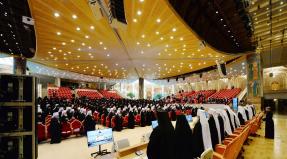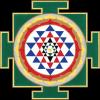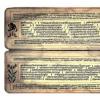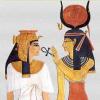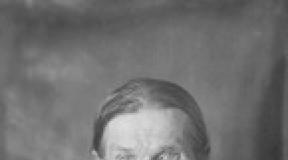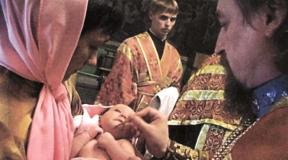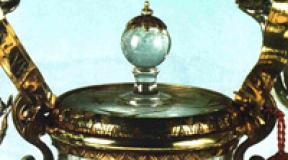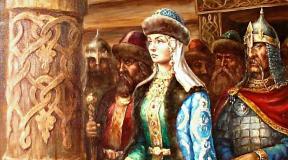Philosophical Dictionary. The meaning of Jun Tzu in the Jun Tzu Collier Dictionary
Jun-tzu is one of the normative concepts of Confucianism.
Jun-tzu is the standard of the Confucian personality, the bearer of the totality of the Confucian virtues. It is opposed to the "insignificant person", "little person" (xiao ren), the embodiment of selfish pragmatism, unable to go beyond the scope of his practical specialization and overcome spiritual and moral limitations. The standard of a "noble husband" was needed as a model, so that then "by means of a human, to straighten a person ... just like the ax is cut down with an ax according to the model that is right in front of your eyes." The perfection of jun-tzu is so significant that Confucius himself did not dare to call himself "who mastered the path of a noble man", or accepted this title with great reservations:
Master said: How can I become a sage or a benevolent person? I just study without satiety, enlighten tirelessly. This is the only thing I can say about myself. "
In Confucius, the concept of junzi is associated with the personality of a ruler or a representative of the social upper classes (meaning "noble man"); in the course of historical development, it acquired a more general character (it began to be understood as a "perfect husband").
The concept of "noble husband" has two interrelated meanings in Confucius - belonging by birthright to the upper strata of society, to the nobility, and an example of human perfection. Belonging to the nobility in itself does not guarantee perfection, although it presupposes it, for it gives a person the opportunity for self-development. To achieve perfection, however, a lot of spiritual work on oneself is necessary, which is difficult to expect from poor commoners who are not capable of assimilating wisdom. It turns out that human perfection, in principle, is available to everyone, but it is the responsibility of the upper strata of society, on which the life of the state depends.
A noble husband seeks to know the will of Heaven, the right way ("Tao"), to be always humane, sincere and truthful in words and thoughts, honest and magnanimous in actions. He always behaves with dignity, serving elders with due respect, taking care of the younger and respecting his people. He cares about the peace and prosperity of the people. His philanthropy is manifested in the fact that he respects and cares for the common people, strives to be fair with them, and not cruel. Confucius gives the right advice for building friendly relations between people: “Do not do to people what you don’t want for yourself, and then both in the state and in the family you will not be“ feeling enmity. ”He is not sad and does not feel fear, because he there is nothing to be ashamed or afraid of, since he is doing the right thing.
A noble husband knows the value of knowledge and learns all his life, for the most important vice is not to love to learn.
At the same time, true wisdom is not at all inaccessible even to ordinary people, for it is contained in one word. To the student's question about whether it is possible to be guided by one word all his life, Confucius replied: "This word is reciprocity. Do not do to others what you do not wish for yourself."
Thus, a noble husband is an ideal normative model of a person who combines spiritual, moral greatness with his inherent right to a high social status. He is opposed by a low person ("xiao ren"), who is not able to listen to Heaven, because he always looks not up, but down, thinks only about his own benefit, cannot adequately endure adversity and is inclined to blame others for them, and therefore is inclined to strife. The support of the state is precisely the noble men who participate in the principle of humanity ("jen"), who have comprehended the need for strict observance of the established order, rituals, rules, ceremonies ("li"). It is their duty to instruct the people on the path of order and virtue through teaching and example and, if necessary, using force.
(Chin.): "worthy", "real", "perfect", "noble man", with his behavior maintaining order and balance in the world. He must have five qualities, five constancies that make him a "perfect husband": zhei, and, li, xiao, zhi. - the standard of the Confucian personality, opposed to the "insignificant person", " little man"(Xiaoren) - the embodiment of selfish pragptism, unable to go beyond the scope of his practical specialization and overcome spiritual and moral limitations. In Confucius, this concept is related to the personality of the ruler or representative of the social top; later it takes on a more general character ("perfect husband"). The most important quality of chun-tzu is “non-equipment,” which means, on the one hand, spiritual, moral and behavioral autonomy, and on the other, adherence to Tao.
Watch value Jun Tzu in other dictionaries
Wei Shang-jun - in Chinese mythology, a Taoist healer. He came to the sick with a black dog.
Guo Tzu-i - in Chinese mythology, the god of happiness and reverence for parents, an example of Confucian virtue.
Big encyclopedic dictionary
Guan Tzu - (7th century BC) - Chinese philosopher who created ethical doctrine.
Big encyclopedic dictionary
Guigu Tzu - (Chinese. Teacher from the valley of werewolves) - in Chinese mythology, the immortal sage, the patron saint of soothsayers, the companion of Lao Tzu.
Big encyclopedic dictionary
Di-Jun - in the Chinese mythology of the Yin period, the primordial sovereign. He was represented with a bird's head and a human body.
Big encyclopedic dictionary
Dong-Jun - (Chinese. Lord of the east) - in Chinese mythology, the deity of the morning sun. He was presented as a youth on a chariot.
Big encyclopedic dictionary
Kun Tzu - see Confucius.
Big encyclopedic dictionary
Lao Tzu - the legendary ancient Chinese thinker, the founder of the religious and philosophical direction of Taoism, a mysterious figure in many respects. Under this name, which, ........
Big encyclopedic dictionary
Mo-tzu - (Mo Di) (479-400 BC) - Ancient Chinese philosopher. Opponent of Confucianism. The views of his students are collected in the book ". The main thesis of the doctrine of" universal love and mutual benefit "........
Big encyclopedic dictionary
Mencius - (c. 372-289 BC) - ancient Chinese philosopher, follower of Confucius. The views are set out in the book. "Formulated the thesis of the inviolability of the division of people into ruling and ruled.
Big encyclopedic dictionary
Xie Jun - (Xi Jun) (b. 1970) - Chinese chess player; international grandmaster (1990), international men's grandmaster (1994), world champion (since 1991).
Big encyclopedic dictionary
Sun Tzu - Ancient Chinese military theorist and commander in the 6-5th centuries. BC. Author of a treatise on the art of war (the relationship between war and politics, factors of victory, strategy and tactics).
Big encyclopedic dictionary
Xun Tzu - (c. 313 - c. 238 BC. E.) - Ancient Chinese philosopher, follower of Confucius. I wrote a treatise. "
Big encyclopedic dictionary
Wu Tzu-hsui - in Chinese mythology, the god of tides, a deified dignitary (5th century BC), who committed suicide by order of the sovereign and thrown into the water.
Big encyclopedic dictionary
Chuang Tzu - (c. 369-286 BC) - an ancient Chinese philosopher, one of the founders of Taoism. The treatise "is written in the form of parables, short stories and dialogues and is directed against the teachings of Confucius and Mo-tzu .........
Big encyclopedic dictionary
Lao-tze Or Lao-tzu - (born in 604 BC) - the founder of Taoism or Taoism - one of the three dominant in China and officially recognized religious and philosophical systems. Basic concept ........
Historical Dictionary
Lao Tzu (Li Er) - - the author of the ancient Chinese treatise Lao-tzu (the ancient name is Tao Te Ching, 4th-3rd centuries BC), a canonical composition of Taoism. The main concept is Tao, which is metaphorically ........
Historical Dictionary
Guo Bao-jun - (b. 1893) - whale. archaeologist, prof., scientific. employee of the Institute of Archeology of the Academy of Sciences of the People's Republic of China. During many. years studying the monuments of the 6th capital of the Yin state (14-11 centuries BC), located approx. Anyang city ........
Guo Tzu-hsing - (d. 1355) - the leader of one of the rebel groups. detachments of "Red Bands" that participated in the anti-mong. Traffic 1351-68 in China. Rod. in prov. Anhui. In Feb. 1352 G. Ts. collected in ........
Soviet Historical Encyclopedia
guan tzu - ancient whale. a treatise on issues of state. management, legislation and economics. Compiled in the form of a dialogue between the ruler of the kingdom Qi Huan-gong (685-643 BC) ........
Soviet Historical Encyclopedia
Gong Tzu-zhen - (pseudo - Din-an) (22. VIII. 1792 - 26. IX. 1841) - whale. scientist-educator, poet. In 1830, together with Lin Tse-hsiu and Wei Yuan, he created a circle of patriotic poets. Opposed the feudal-hierarchical .........
Soviet Historical Encyclopedia
Lao Tzu - semi-legendary author of the main. manuf. philosophical Taoism - the tract "Tao Te Ching" (sometimes called "). The starting point of the socio-political theory of this treatise is ........
Soviet Historical Encyclopedia
Li Tzu-cheng - (1606 - Oct. 1645) - the leader of the cross. wars (1628-45) in China. A native of Michzhi county in prov. Shaanxi, the son of a peasant. Served as a postal courier. Joining the ranks of the rebels since the beginning of the war, ........
Soviet Historical Encyclopedia
Mencius - (approx. 372-289 BC) - ancient Chinese. thinker, follower of Confucius in politics and ethics. Born in the kingdom of Zou. He lived in the capitals of the states of Qi and Liang. M.-c. believed that the path to an exemplary ........
Soviet Historical Encyclopedia
Sun Tzu - Sun Wu (6-5 centuries BC), - ancient Chinese. commander and soldier. theorist. Rod. in the kingdom of Qi. In 514-496 BC. e. served as a military leader in the kingdom of W. Thanks to the military. art S.-c. army of this ........
Soviet Historical Encyclopedia
Xun Tzu - (c. 298-238 BC) - ancient cith. thinker, follower of Confucius. The treatise written by him "is the first systematic. Exposition of Confucian philosophy. S.-ts. has exposed ........
Soviet Historical Encyclopedia
huainan tzu - (Book of the Huainan Wang) - ancient Chinese. a treatise compiled by approx. 140 BC e. whale. scientists who were in the service of the Huainan wang Liu An (d. 122 BC). Consists of 21 chapters .........
Soviet Historical Encyclopedia
zi Zhi Tong Jian - ("General Review, Helping Management") - a consolidated work on the history of China, covering the period from 403 BC. e. to 959 n. e. Ch. compiled by Sima Guang (1019-86). Sima Guang made up ........
Soviet Historical Encyclopedia
shang Jun Shu - ("Book of the ruler of the Shan region") - ancient Chinese. politician a treatise of the legalist school (see "Fatsia"). Compiled in the 3rd century. BC e. It sets out the teachings of Shang Yang (390-338 BC) on the system and methods ........
Soviet Historical Encyclopedia
Wei Shang-jun - in Chinese mythology, one of the gods - patrons of medicine. The real Taoist V. Sh.-ts. lived in the late. 7 - early. 8 centuries, he roamed the country with a black dog named Black Dragon and studied ........
Encyclopedia of mythology
JUN ZI
JUN ZI
JUN ZI (Chinese - noble man, perfect husband; original - "child of the ruler") - chinese philosophy, the standard of the Confucian personality, first presented in * Lunyue ”, the bearer of the totality of Confucian virtues. Synonyms - “ great person”(Yes),“ humane person ”(ren ren, see Ren). It is opposed to the “insignificant person”, “little person” (xiao ren), the embodiment of egoistic pragmatism, unable to go beyond the scope of his practical specialization (“instrumentality” -), to overcome spiritual and moral limitations. In Confucius, the concept of "tszun tzu" correlates with the personality of a ruler or a representative of the social top ("noble husband"), subsequently acquires a more character ("perfect husband"). In the hierarchy of human beings, Jun Tzu is below the “perfectly wise” (”he), but with his“ grace / virtue ”(de) he is able to influence“ little people ”just as the wind affects the grass. Its most important thing is “non-equipment” (bu qi), that is, on the one hand, spiritual character
mental and behavioral, c - adherence, rather than objective realities (qi). Endowed with “the knowledge of predestination (min)”, Jun Tzu stoically adheres to its path, which assumes active “concealment” during the triumph of Tao in the Celestial Empire, withdrawal from affairs - in the absence of Tao.
Lit .: Confucianism in China. M., 1982; Human problem in traditional Chinese teachings. M., 1983; Personality in Traditional China. M., 1992.
A. I. Kobzev
New philosophical encyclopedia: In 4 volumes. M .: Thought. Edited by V.S.Stepin. 2001 .
See what "Tszyun Tszy" is in other dictionaries:
- (Chinese 君子) one of the normative concepts of Confucianism. Jun Tzu is a standard of Confucian personality, first presented in Lunyue and developed in Zhong Yun, the bearer of the totality of Confucian virtues. Contrasted by ... ... Wikipedia
Noble husband, perfect husband; the original meaning is the child of the ruler. Synonyms are great man (da ren), humane man (ren ren). The standard of the Confucian personality, first presented in Lunyue, is the bearer of the totality of Confucian ... ... Collier's Encyclopedia
JUN-CHI - (Chinese): "worthy", "real", "perfect", "noble man", with his behavior maintaining order and balance in the world. He must have five qualities, five constancies that make him a "perfect husband": zhei, and, li, xiao, ... ... Eurasian wisdom from A to Z. Explanatory dictionary
See the perfect husband ...
One of the eight philosophies. schools, into which, according to the testimony of the Han Fei Zi monument, early Confucianism was divided after the death of Confucius. It existed in the 5th and 3rd centuries. BC. Ch. its representatives were the grandson of Confucius Zi Si (c. 483 402 BC) and ... ... Chinese philosophy. Encyclopedic Dictionary.
Zi gu. Engraving from the book "Xiuxiang coy shen ji" ("Illustrated notes on the search for spirits") Zi gu (Ch. 紫姑 "Purple Maiden"), Kansan nian nian (Ch. 伉 三 娘娘 "Lady of the Outhouse"), Ken Sangu ( "Rub ... Wikipedia
MO DI Mo tzu. 468 (or 478, 480, 490, etc.) BC, state in Lu (or state in Sung), 376 (or 403, 392, etc.) BC Thinker, politician activist, founder of Philosophy. schools and organizations of moists (mois). Developed an original philosophy. teaching, in many ways ... ... Chinese philosophy. Encyclopedic Dictionary.
Confucius Confucius (Figure dated: 1922) Confucius (孔子 Kun Tzu, less often 孔夫子 Kun Fu Tzu, Latinized Confucius; c. 551 BC, Qufu 479 BC) is a Chinese thinker and philosopher. His teachings had a profound impact on the civilization of China and ... Wikipedia
Meng Ke, Meng Zi yu (c. 372 289 BC) O. Whale. philosopher, teacher, second after Confucius ideologist of early Confucianism. Born in the kingdom of Zou (later the province of the kingdom of Lu, now the South-Eastern part of the Zousian county of the Shan dong province) Happened ... ... Philosophical Encyclopedia
Books
- Guo Mo-Jo. Works in 3 volumes (set of 3 books), Guo Mo-Jo. Among contemporary artists of words in China, one of the most honorable places is the work of the outstanding poet and playwright Guo Mo-jo. According to the ideological content of literary creativity and ... Category: Classical and contemporary prose Publisher: State Publishing House of Fiction,
- Confucianism. Classical period, A. S. Martynov, This book is intended to acquaint all those interested with one of the most important ideological systems in the history of mankind - Confucianism. The first part of the book tells about life and destiny ... Category:
Great prophets and thinkers. Moral teachings from Moses to the present day Huseynov Abdusalam Abdulkerimovich
Jun Tzu: a noble man
Jun Tzu: a noble man
"Lunyu" begins (1, 1) and ends (20, 3) with statements that talk about the need to learn and about a noble husband. These two interconnected thoughts permeate the entire work, testifying to the fact that the teachings of Confucius are at the same time a program of personal self-improvement. If we talk about a form of social practice that is adequate moral philosophy Confucius and sanctioned by her as the most worthy, then it can be expressed in one word: "learns." In this case, of course, it comes about learning as a special stage and method of socialization of the individual, the inclusion of children, adolescents and young men in adulthood. To learn is to live in a mode of ennobling growth.
The most important categories of philosophy and ethics of Confucius ("ren", "li", "wen", etc.) are at the same time traits of an ideal personality called a noble husband. In a sense, Confucius is only interested in questions about who a noble husband is and how one can become one. This is the ideological dominant of the teaching, which at the same time became the compositional basis of the composition.
The concept of a noble husband ("tszun-tzu") is mentioned in "Lunyue" almost as often as the concept of philanthropy ("ren") - 107 times. A noble husband is an ideal person, not in the sense of the unreality of a perfect person, but in the sense of the embodiment of the ideal. This is a personal model that is a working evaluation criterion; it is quite comparable with certain living individuals. One can speak of an ideal in at least two senses: a) as an internal image of a thing (a typical example: an ideal point) and b) as a kind of distant in time or outward state (such is, for example, the idea of \u200b\u200bparadise). The image of a noble man is ideal in the first sense: he does not exist outside of empirical noble men, and at the same time is not embodied in any of them in an exhaustive way.
In Confucius, the concept of a noble husband has two meanings: belonging to aristocratic classes and human perfection. Belonging to the aristocratic class does not guarantee human perfection, for it is achieved in the process of persistent spiritual work. At the same time, not only privileged individuals can claim human perfection. Above, we have already cited Confucius's judgment that there should be no differences in origin in teaching (XV, 38). However, human perfection, which, from the point of view of natural potencies, may be open to all people, is a specific duty of certain estates. The concept of a perfect person, or a noble husband, is contradictory. The question of whether this or that person is perfect, by definition, can only be attested by himself. But if he himself attests to his perfection, then this just indicates that he is imperfect. The way out of this paradox proposed by Confucius is as follows: there are certain estates that are noble, perfect in the sense that human perfection is for them a social purpose and obligation. Consequently, a noble husband is empirically real as a constant effort of certain individuals to become noble, to live up to their purpose.
Confucius has a "noble husband", on the one hand, a descriptive concept denoting a certain class of people. "If a noble husband is not solid, he will not enjoy authority ... do not be friends with someone who is no match for you" (I, 8) - we read in Confucius; it is obvious that here we are talking about class affiliation. On the other hand, the concept of a noble husband is axiological, it denotes an empirically difficult to achieve or completely unattainable ideal of a person. Tzu-lu asked about a noble husband. Master replied, "Cultivate yourself to be reverent." [Tzu-lu] asked; "And it's all?" [Teacher] said, "Cultivate yourself to bring peace to other people." [Tzu-lu] asked, "Is that all?" [Teacher] replied, “By cultivating yourself, bring peace to the people. Wasn't that what Yao and Shun were concerned about! " (XIV, 42). From this fragment it is clear that a noble man means such a person's perfection, which is poured into a perfect society, which was excessive even for Yao and Shun - ideal, according to Confucian ideas, rulers of antiquity. Confucius also did not consider himself a noble man; such self-esteem is significant, especially against the background of the fact that by the students who composed the "Lunyu" the image of the Teacher is presented as if he were the most noble of noble men.
The noble husband is the focus of all perfections, the personification of Confucian ideas about the ideal person. He seeks to learn Tao, the right path, thinks about being sincere and truthful in words, honest and respectful in actions, is not ashamed of his actions: “Without knowing the will of Heaven, you will not become a noble husband” (20, 3); "A noble husband only cares about the observance of morality" (IV, 11). He is philanthropic, possesses "ren", philanthropy has a moral significance for him, it is more important than water and fire: "A noble man, even during the meal, does not leave philanthropy - it is always with him: when he is in a hurry and when he has difficult times" ( IV, 5). He is just, limits himself to the rules of ritual, does everything properly, clearly realizing that only ritual transforms natural aspirations into human actions: “A noble man always proceeds from a sense of justice. This is manifested in the fact that in deeds he follows the Rules, in speeches he is modest, completing deeds, truthful. This is just such a noble man ”(xv, 17). He is constantly learning, for only "he who, repeating the old, is able to find the new, can become a mentor" (II, 11). He does not seek to accommodate others and does not try to subjugate others to his will, harmony for him is not reduced to like-mindedness: "A noble man strives for unity through dissent, but does not strive for unity through obedience" (XIII, 23).
A person is not born a noble husband, even if he belongs to the noble class. He becomes, or, more precisely, works all his life to become one. For the process of becoming a noble husband, the following are essential: a) how he relates to himself and to other people; b) how practical behavior and bookish knowledge relate in his life.
The place of a noble husband in the system of human relations can be defined in three sentences: a noble husband treats everyone equally; borrows the good from people and gets closer to the best; judges only himself. He treats everyone equally, without showing partiality, for he respects human dignity in everyone and clearly realizes that without this there will be no consent in the human community, his attitude towards people is characterized by what he unites, and does not cut off. You can always learn something from people. Master said, “When there are three [of us] on the way, each of the two [companions] can become my mentor. I choose the good and follow it, while the bad serves as a warning and helps me to correct ”(VII, 23). A person learns from other people. A noble husband knows how to use this correctly. Master said, “By not talking to someone you need to talk to, you are losing people. When you talk to someone you would rather not speak to, you lose your words. A wise man does not lose people and does not lose his word ”(XV, 8). A person not only learns from others. He also teaches them. And in this matter, a noble husband is a master. He proceeds from the conviction that he has the only means of beneficial influence on others, on affairs in the state - this is the impeccability of his own behavior: "If he is not able to correct himself, then how can he correct others?" (XIII, 13). Therefore, he does not blame others, does not assess them (XIV, 29), “a noble man is demanding of himself” (XV, 20). Confucius believed that people with beautiful words and feigned manners lack humanity (I, 3); therefore, the correspondence between words and deeds is a matter of special concern for a noble man. The deeds of a noble man must precede words. In education and training, practical choice plays a decisive role - a person's attitude to parents, friends, the sovereign, observance of the ritual. As for the speech, it should be restrained; a noble man “first transforms words into deeds, and then follows them” (II, 13). (The same fragment in Krivtsov's translation: "He carries out his plans, and then he talks about it.")
The main practical form in which a noble husband can most fully develop his qualities is dignitary activity (it is indicative that the graphic of the concept of a noble husband initially means “the child of the ruler”). For Confucius, big politics is just a continuation and completion of the orderliness of social life set by the ritual, before state administration, and along with it, there is government, which consists in showing filial piety and being friendly with brothers (2, 21). In the history of Chinese statehood, the Confucian tradition is prevalent, but not the only one. It is opposed by the legist tradition that arose simultaneously with it, according to which the supporting structure of the state is the law, and not the ritual. Shen zhi ("rule by means of people") or fa zhi ("rule by means of law") - this is how this opposition, which has come down to our days, was subsequently fixed in the Chinese culture terminologically and conceptually. To put it very sharply, we are talking about two different philosophies and practices of the state, about whether to understand it as a large family, which is only a family because it cultivates qualitative differences between parents and children, older and younger, or like a large Orwellian barn in which "all pigs are equal." Confucius opposed the Legists because their teaching ignored the distinction between noble and common people, and also deprived politics of its living ethical basis. Master said, “If you teach the people by [instituting] rule of law and maintain order [by the threat of] punishment, then the people will avoid punishment and lose [feelings of] shame. If you instruct the people by [imposing] government based on virtue, and maintain order by [using] the Rules, then [the people] will have [a feeling of] shame and they will be corrected ”(II, 3).
Just as the law needs a repressive apparatus, so the Rules need a noble husband. The dignified activity of a noble husband is designed to ensure that government is in line with ritual; through the noble husband, the synthesis of politics and ethics is carried out. As much as politics needs a noble husband, just as a noble husband needs politics, for it maximally expands his possibilities of influencing the state of affairs in society.
But what if the state is mismanaged and engulfed in unrest? In this case, Confucius proposes to move away from active state activity: “If there is a Tao-Path in the Celestial Empire, then show yourself; if there is no Tao-Path [in the Celestial Empire], hide. In a state where the Tao-Path reigns, it is a shame to be poor and ignorant. In a state devoid of the Tao-Way, it is a shame to be rich and noble ”(VIII, 13). Poverty and ignorance under good governance and wealth and nobility under poor governance have in common that they are the result of vicious behavior, although it is true that each time we are talking about different vices. Confucius gives one more piece of advice, which concerns not only the attitude to state and bureaucratic activities, but in general the way a noble husband behaves in calm and turbulent times: “The teacher said:“ In a state where the Tao-Way reigns, one must speak directly and act directly, in a state devoid of the Tao-Path, one must act directly, and speak with restraint ”(XIV, 3). From the point of view of Confucius, in the relationship between ethics and politics, the priority belongs to ethics, although, of course, he did not deny either the role of legality or the role of punishment. This determines the political activity of a noble husband, it is justified to the extent that politics rests on a solid ethical foundation.
A noble man in the teachings of Confucius is opposed by a low man (xiao ren). The concept of xiao ren is ambiguous: he is a person low in his moral thoughts, dark in mental development, possibly also a commoner by origin and social status, although the latter is not a sentence and not every commoner is doomed to remain xiao ren. In a word, he is in everything the antipode of a noble husband. This is a kind of anti-ideal; something from which a person should leave. The term "xiao ren" is used in "Lunyue" 24 times, of which 20 times in the meaning of a person devoid of virtue.
If we take the main signs of a low person, then they consist in the fact that he looks down, thinks about how to get a better job, benefit, does not know how to endure difficulties, need, does not have human patience in himself and is "demanding of others" ( XV, 20), prone to contention, even “may become a robber” (XVII, 23). In a word, in the behavior of a low person, natural determination prevails over ethical. This person is rude, uncouth, headstrong, not just for appearance and manners, but also in the deep sense that for him the ritual, the idea of \u200b\u200bhuman decency and dignity did not become the defining motives of behavior.
It is important to re-emphasize: there is no cosmic or anthropological predestination in relation to human destiny. Just as a noble man makes himself out in stubborn labors, so a low man is the result of the indifference of individuals for themselves. True, the status of a commoner contributes to such negligence, but only helps. Confucius is credited with the following judgment: “A man hides his heart - it can neither be measured nor weighed. Beautiful and ugly - everything is hidden in the human heart, but you will not see its color ”. A person, according to his original capabilities, is open to both good and evil. Xiao Ren is the actualization of the possibility of evil. The expression and reason for this, according to Confucius, is that the low man pulls on himself, for his own benefit; he does not know how to properly build his relationships with other people, the idea of \u200b\u200breciprocity is alien to him. “The little man, as Confucius says, strives for unity through obedience, but does not strive for unity through dissent” (XIII, 23).
To correctly understand Confucius's ideas about the moral capabilities of a person, it should be borne in mind that in his teaching moral ideal has two varieties - filial piety and noble husband. There is an obvious contradiction between them. The image of filial reverence rests on the virtue of obedience. A noble husband, on the other hand, is an independent and self-sufficient person; he is his own judge. There may be at least two explanations of this contradiction, which are not mutually exclusive. According to the first, we are talking about different levels of social and moral life. Filial piety is a moral ideal in its mass expression, accessible to everyone, including commoners, a noble husband is a rarely available peak in the moral development of a personality associated with the activities of the sovereign and his advisers. In human everyday life, ren (philanthropy) takes the form of filial piety, and in state-administrative activities - a noble husband. According to the second explanation, we are talking about different stages of the moral development of the individual. Filial piety is the first stage, and the noble man is the second. A person can become a noble husband no earlier than he himself becomes a father. Both of these explanations are quite compatible if we consider that dignitary activities were the lot of fathers - people of age, experienced, mature. Moreover, the second level (or stage) does not cancel the first, but is firmly based on it. The rules of filial piety are even more imperative for a noble husband than for an ordinary person.
From the book Ethics author Apresyan Ruben GrantovichChun-tzu: a noble husband Confucius has two interrelated meanings of a noble husband: belonging to an aristocracy and human perfection. Belonging to the aristocracy does not in itself guarantee human perfection, for this requires
From the book The big Book eastern wisdom author Oleg EvtikhovThe noble man (junzi) as a symbol of the Confucian tradition The Master said: - If a noble man (junzi) is not solid in appearance, then he will not enjoy authority and his knowledge will not be strong. Therefore, set yourself as the main thing loyalty and sincerity; don't be friends with
JUN ZI
"Noble husband", "perfect husband"; the original meaning is "the ruler's child". Synonyms - "great man" (da ren), "humane man" (ren ren). The standard of the Confucian personality, first presented in Lunyue, is the bearer of the totality of Confucian virtues. It is opposed to the "insignificant person", "little person" (xiao ren), the embodiment of egoistic pragmatism, unable to go beyond the scope of his practical specialization ("tool" - qi2) and overcome spiritual and moral limitations. In Confucius, the concept of "tszyun tzu" refers to the personality of a ruler or representative of the social upper class ("noble man"); later it takes on a more general character ("perfect husband"). In the hierarchy of human beings, Jun Tzu is lower than the "perfectly wise" (sheng1), but also with its "grace / virtue" (de1) is capable of influencing "little people" like the wind on grass. Its most important quality is "non-equipment" (bu qi), that is, on the one hand, spiritual, moral and behavioral autonomy, on the other hand, adherence to Tao, and not to objective realities (qi2). Endowed with the "knowledge of predestination (min1)", Jun Tzu stoically adheres to its path, which presupposes active activity during the triumph of Tao in the Celestial Empire and "concealment", withdrawal from affairs - in the absence of Tao.
Collier. Collier's Dictionary. 2012
See also interpretations, synonyms, meanings of the word and what is TsZYUN TsZI in Russian in dictionaries, encyclopedias and reference books:
- LAO TZU
the legendary ancient Chinese thinker, the founder of the religious and philosophical direction of Taoism, a mysterious figure in many ways. Under this name, which is most likely a nickname ... - LAO TZU
(Li Er), the legendary author of the ancient Chinese treatise "Lao Tzu" (the ancient name is "Tao Te Ching", 4-3 centuries BC), the canonical ... - LAO TZU in the Sayings of great people:
See it as difficult and it won't be difficult in the end. Lao Tzu - True words not graceful, graceful ... - WEI SHAN-JUN in the Handbook of Characters and Cult Objects of Greek Mythology:
in Chinese mythology, one of the gods - patrons of medicine. The real Taoist V. Sh.-ts. lived in the late. 7 - early. 8 … - XIE JUN in the Big Encyclopedic Dictionary:
(Xi Jun) (b. 1970) Chinese chess player; international grandmaster (1990), international men's grandmaster (1994). World champion (with ... - DONG-JUN in the Big Encyclopedic Dictionary:
(Chinese. Lord of the East) in Chinese mythology, the deity of the morning sun. He was introduced as a young man on ... - DI-JUN in the Big Encyclopedic Dictionary:
in the Chinese mythology of the Yin period, the primordial sovereign. He was represented with a bird's head and body ... - WEI SHAN-JUN in the Big Encyclopedic Dictionary:
in Chinese mythology, the Taoist is a healer. I came to the patients with black ... - CONFUSION
ethical and political doctrine that arose in Ancient China and had a tremendous impact on the development of spiritual culture, political life and social system in China ... - CHINA in the Great Soviet Encyclopedia, TSB.
- YAN-TZI-JIANG
(Yang-tse-kiang in literal translation from the conditional English transcription Yang-tze-kiang) is the most significant river in China and one of the greatest rivers on earth ... - YAN-TZI-JIANG
(Yang-tse-kiang by literal transmission with the conditional English transcription Yang-tze-kiang)? the most significant river in China and one of the greatest rivers on earth ... - CHINA, STATE IN ASIA in the Brockhaus and Efron Encyclopedia.
- LEGISM in Collier's Dictionary:
"School of law", is formed in the 4th-3rd centuries. BC. theoretical substantiation of the totalitarian-despotic government of the state and society, which was the first in ... - CHINESE PHILOSOPHY in Collier's Dictionary.
- in Collier's Dictionary:
"Due justice", "duty", "sense of duty", "fairness", "integrity", "honesty", "correctness", "principle", "meaning", "meaning" - one of the fundamental categories of Chinese philosophy, in ... - Guigu-tszy in Collier's Dictionary:
"The teacher from the Gorge of the Navay". The fundamental treatise of the ancient Chinese school of political philosophy tszun-heng jia (literally: "school of longitudinal-vertical and transverse-horizontal"), traditionally dated ... - GUAN TZI in Collier's Dictionary:
one of the largest ancient Chinese philosophical treatises (about 130 thousand hieroglyphs), combining the works of different authors, mainly 4-3 centuries. BC., … - WANG CHUANSHAN in Collier's Dictionary:
Wang Fuzhi, Wang Ernong, Wang Jianzhai, an eminent Chinese neo-Confucian philosopher and encyclopedic scholar. Born into an intelligent family on October 7, 1619 in ... - XIE JUN in the Modern explanatory dictionary, TSB:
(Xi Jun) (b. 1970), Chinese chess player; international grandmaster (1990), international men's grandmaster (1994). World champion (with ... - CONFUCIUS
(Kun-tzu) (551-479 BC) - Chinese philosopher, creator of one of the first mature philosophical concepts and the founder of Confucianism - an ideological trend, ... - CHINESE PHILOSOPHY in the Newest Philosophical Dictionary:
one of the main components of the world history of philosophy, characterized by a pronounced originality. Radical demythologization was carried out in ancient Chinese culture, as it were ... - PORCELAIN in the Dictionary of Fine Art Terms:
- (from Persian fegfur) fine ceramics, sintered, impervious to water and gas, usually white, sonorous, translucent in a thin layer, ... - SHANG YANG in the Great Soviet Encyclopedia, TSB:
Yang (390-338 BC), statesman, reformer in Ancient China, one of the founders of the Legist school (see Fazia). Happened ... - ZOU JUN in the Great Soviet Encyclopedia, TSB:
Rong (1885, Basian County, Sichuan Province - 3.4.1905, Shanghai), Chinese bourgeois revolutionary. From the family of a major merchant. He studied in Japan, where ... - FACZYA in the Great Soviet Encyclopedia, TSB:
[whale. v school of legalists (legists)], philosophical school in ancient China. Its main provisions were formulated by Shang Yang (390v338 BC) ... - PORCELAIN in the Great Soviet Encyclopedia, TSB:
(tur. farfur, fagfur, from Persian fegfur), fine ceramics, sintered, impervious to water and gas, usually white, sonorous, translucent in ... - MAN TZI in the Great Soviet Encyclopedia, TSB:
Meng Ke (about 372 - 289 BC), an ancient Chinese philosopher, one of the most active followers of Confucius. Was born in … - MA JI-YUAN in the Great Soviet Encyclopedia, TSB:
Zhi-yuan, Chinese playwright and poet during the Mongol Yuan dynasty (1280-1368). Preserved 7 of ... - CONFUCIUS in the Great Soviet Encyclopedia, TSB:
Kun-tzu (born about 551 - died 479 BC), ancient Chinese thinker, founder of Confucianism. Came from an impoverished noble family ... - DAOSISM in the Great Soviet Encyclopedia, TSB:
1) one of the main directions of ancient kith. philosophy, represented, first of all, by the treatises "Lao Tzu" (another name - "Tao Te Ching") and ... - SECOND REVOLUTION in the Great Soviet Encyclopedia, TSB:
revolution "adopted in historical literature the name of the uprising of military units in Central and South China in July - August 1913 against ... - HOO-BEI in the Encyclopedic Dictionary of Brockhaus and Euphron:
(eng. Hupe) - a Chinese province, lying along the middle course of the Yang-tzu-jiang, to the east of the provinces of Shen-si and Sy-chuan; occupies an area of \u200b\u200balmost ... - BEIJING CONTRACT in the Encyclopedic Dictionary of Brockhaus and Euphron:
an additional treatise signed on November 2, 1860 in Beijing by the representative of Russia, Major General N.P. Ignatiev (later Count) and the Chinese prince ... - CHINA, STATE IN ASIA in the Encyclopedic Dictionary of Brockhaus and Euphron.
- KVANTUN REGION in the Encyclopedic Dictionary of Brockhaus and Euphron:
so was the name of the territory leased by Russia from China on the basis of the convention on March 5 (17), 1898 at the southern end of the Liaodong Peninsula, ... - CE in the Big Russian Encyclopedic Dictionary:
JUN, Xi Jun (b. 1970), whale. chess player; int. grandmaster (1990), int. grandmaster among men (1994). World champion in ... - HOO-BEI in the Brockhaus and Efron Encyclopedia:
(English Hupe)? the Chinese province, lying along the middle course of the Yang-tzu-jiang, to the B of the Shen-si and Si-chuan provinces; occupies an area of \u200b\u200balmost ... - BEIJING CONTRACT in the Brockhaus and Efron Encyclopedia:
? an additional treatise signed on November 2, 1860 in Beijing by the representative of Russia, Major General N.P. Ignatiev (later Count) and the Chinese ... - KVANTUN REGION in the Brockhaus and Efron Encyclopedia:
? this was the name of the territory leased by Russia from China on the basis of the convention on March 5 (17), 1898 at the southern tip of Liaodong ...


